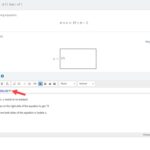Embarking on a language learning journey can feel daunting, but with the right approach, it can be an incredibly rewarding experience. This guide provides a comprehensive roadmap on How To Start Learning A Language, outlining effective strategies and leveraging readily available resources.
Setting Achievable Goals: Your Language Learning Foundation
Forget about instant fluency. Successful language acquisition hinges on setting realistic, measurable goals. Instead of aiming for a marathon on your first run, start with achievable milestones. Initially, focus on mastering the alphabet, learning basic greetings, or memorizing a set number of characters. As you progress, adjust your goals—perhaps aiming for a simple conversation with a native speaker or reading a news article. Tailor your goals to your specific needs, prioritizing practical vocabulary and grammar over less immediately useful topics. This targeted approach not only fosters a sense of accomplishment but also helps you analyze your evolving language needs and strategize your next learning steps.
Defining Your “How”: Tailoring Your Learning Method
Choosing a language is just the first step; defining how you learn is equally crucial. Reflect on your desired outcomes: Do you envision conversing with locals on vacation or delving into untranslated literature? This clarity informs your choice of learning methods. The field of “language for specific purposes” emphasizes tailoring learning to individual needs, a principle applicable to any learner. If traditional textbook exercises feel stifling, explore audio-based methods like Michel Thomas, Pimsleur, or the free Language Transfer courses. These cater to auditory learners and can provide a surprisingly effective foundation in grammar and vocabulary.
Exploring Diverse Learning Resources
Fortunately, we live in a golden age of language learning resources. Expert-led courses, both in-person and online, offer structured learning and personalized feedback. Organizations like Natakallam and Chatterbox connect learners with refugee teachers, providing valuable language instruction while supporting displaced communities. Online platforms like Italki offer flexible, affordable one-on-one lessons with professional teachers and conversation partners, allowing you to tailor lessons to your specific goals. Free language exchange apps like Tandem and HelloTalk connect you with native speakers for reciprocal language practice.
Leveraging Technology and Free Content
Language learning apps have revolutionized the field. Beyond the popular Duolingo, explore options like Memrise, Babbel, Drops for vocabulary building, and Anki for spaced repetition learning. Language-specific apps like Chineasy for Mandarin and Keefak for Lebanese Arabic cater to niche needs. Lingualism offers authentic, spoken-language materials for several languages. Websites like Lexilogos provide a treasure trove of free courses, dictionaries, and resources in over 100 languages, connecting you with university-level materials and community-created content.
Harnessing the Power of Online Media
YouTube and podcasts are invaluable resources for goal-oriented learners. YouTube channels offer grammar explanations, vocabulary lessons, and cultural insights, often addressing specific learner questions. Podcasts provide graded listening practice, from slow-paced news to authentic radio programs. Engage with language learning communities and content creators for advice, motivation, and learning strategies.
Maintaining Momentum and Embracing Lifelong Learning
As you progress, maintaining motivation is key. The “intermediate plateau” can be frustrating, but consistent exposure to “comprehensible input”—content slightly above your current level—is crucial for continued growth. Graded readers, news articles for learners (like those from Al Jazeera), and bilingual books facilitate this. Immerse yourself in target-language media, even reality TV, to improve comprehension and cultural understanding.
Integrate the language into your daily life. Talk to yourself, keep a journal, or record yourself speaking. Language learning is a lifelong journey, evolving from structured study to engaging with literature, forging multilingual friendships, and experiencing the world through a new linguistic lens. With clear goals, effective methods, and a commitment to lifelong learning, you can transform the challenge of language acquisition into the joy of fluency.
